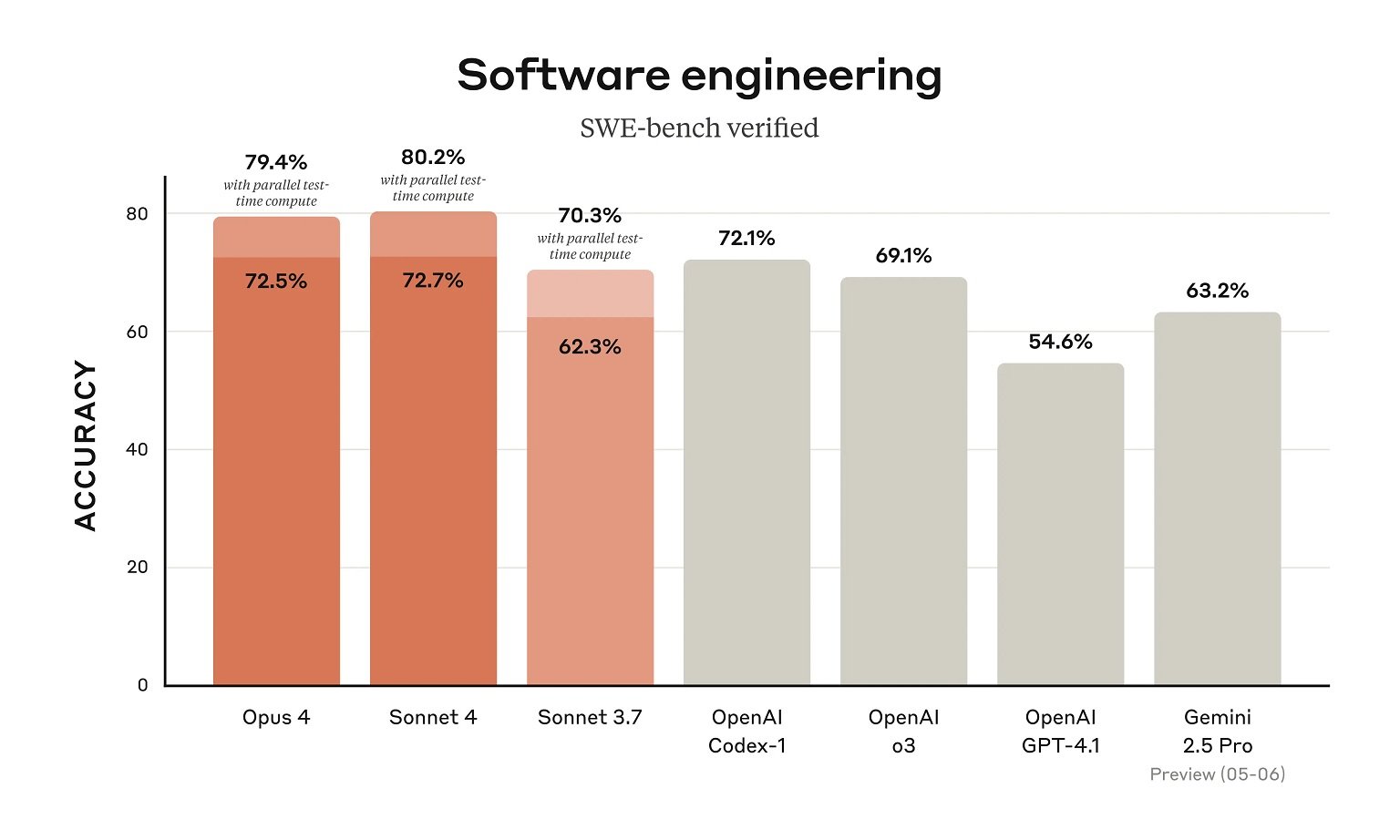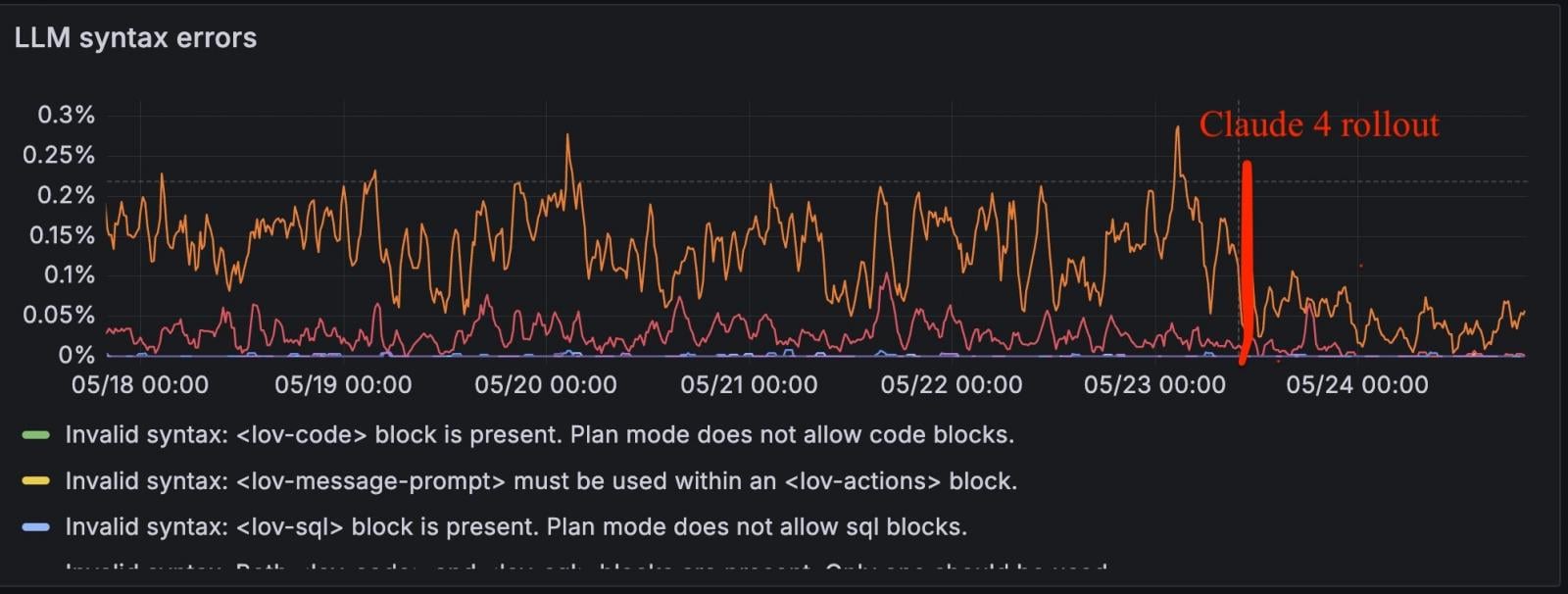Vibe Coding Company Reports 25% Reduction in Syntax Errors with Claude 4 Implementation

Vibe coding tool, Lovable, has reported a significant enhancement in its error management and processing speed following the integration of Claude 4, citing a 25% reduction in errors and a 40% increase in operational speed.
On May 22, Anthropic announced the rollout of two new models: Claude Sonnet 4 and Claude Opus 4. While Sonnet is available for free users, Opus, a subscription-based service, offers superior coding capabilities.
Anthropic indicated in an official blog post that Claude Opus 4 achieved a score of 72.5% on the Software Engineering Benchmark (SWE-bench).

During testing, Opus 4 demonstrated sustained performance capabilities in complex, long-duration tasks requiring extensive code execution.
Anthropic claimed that the latest model effectively executed code for a continuous period of seven hours.
Lovable, which employs Claude in its AI-driven web and application development platform, has noticed similar advancements since upgrading to Claude 4.
According to a post on X by Lovable, the company has seen a 25% reduction in errors and a 40% increase in productivity for project creation and revisions across all projects, including legacy ones.

In a separate statement on X, Lovable’s founder, Anton Osika, remarked, “Claude 4 has effectively eliminated most of Lovable’s syntax errors,” particularly in the context of Vibe coding.
While the reception of Claude 4 varies among users, personal experiences indicate that it generally produces fewer errors compared to alternatives like Gemini when developing applications in Dart and Kotlin.
Performance can fluctuate based on context and specific project requirements; however, in scenarios not demanding extensive context, Claude 4 has outperformed Gemini in practical assessments.
Though Claude models have long been recognized for their excellence in coding, the introduction of Google’s Gemini 2.5 Pro, boasting a one million context window, has intensified competition. This extended context feature offers Gemini an advantage over Claude 4’s 200,000 context window. However, this does not automatically render Gemini 2.5 superior in coding tasks.
Both models exhibit remarkable capabilities and occasional shortcomings, emphasizing the importance of effective prompt engineering in achieving desired outcomes.
A strategic approach often involves leveraging multiple models—utilizing o3 or Gemini for planning and Claude 4 and Gemini for execution in coding tasks.








